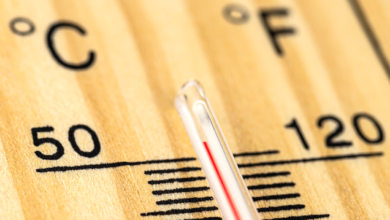2000 years of tree rings confirm global warming records of 2023

World-wide, the summer 2023 had marked the new record of global warming with +0.66°C on 1991-2020
The summer of 2023 in the northern hemisphere has been the hottest in at least 2000 years. Not only since there have been time series based on point measurements by thermometers, but that is also, since about 1850. How is this possible? The global warming record is written in tree growth rings.
According to data from the European satellite system Copernicus, the months from June to August 2023 were 0.66 ºC warmer, globally, than the average of the last 30 years. A record. Considering only the northern hemisphere, the value of the thermal anomaly rises to 0.83°C. But these data are part of historical series relating only to the last 170 years, strongly influenced by human activity and the massive emission of greenhouse gases of anthropic origin.
In the past, during the Holocene and in the last 10 thousand years, due to the natural variability of the Earth’s climate system, there have been (relatively) warmer periods. What’s their temperature compared to last summer? And so: how much do human activities really weigh, and how much the current climate crisis is attributable to anthropogenic emissions, mainly caused by the use of fossil fuels?
1.2 degrees warmer than the summer of 246 A.D.
To answer these questions, a group of researchers from Johannes Gutenberg University in Mainz, Germany, and Oxford University, used a method that has a solid scientific basis to reconstruct the temperature trend before the advent of thermometer measurements. And that is the measurement of tree rings. The authors based themselves on the analysis of this “natural thermometer” by observing 15 different sites scattered throughout the northern hemisphere, north of the tropic of Cancer. Managing to reconstruct the temperatures of the summer for all the last 2000 years.
The comparison with the summer 2023 data shows that, rightly, we can talk about global warming records. Those months of last year were 1.2 degrees warmer than the hottest summer of the last 2000 years (before the beginning of the industrial era), that of the year 246. As many as 25 of the last 28 years have been warmer than that record at the turn of the classical and early Middle Ages.





